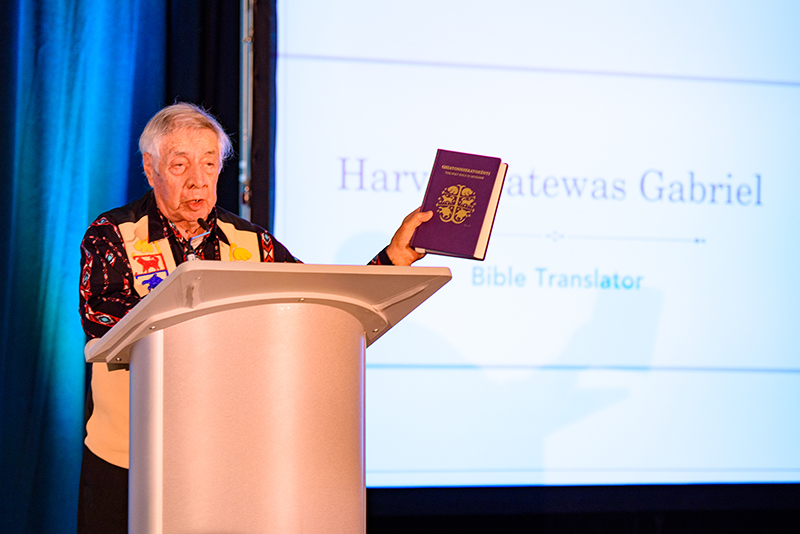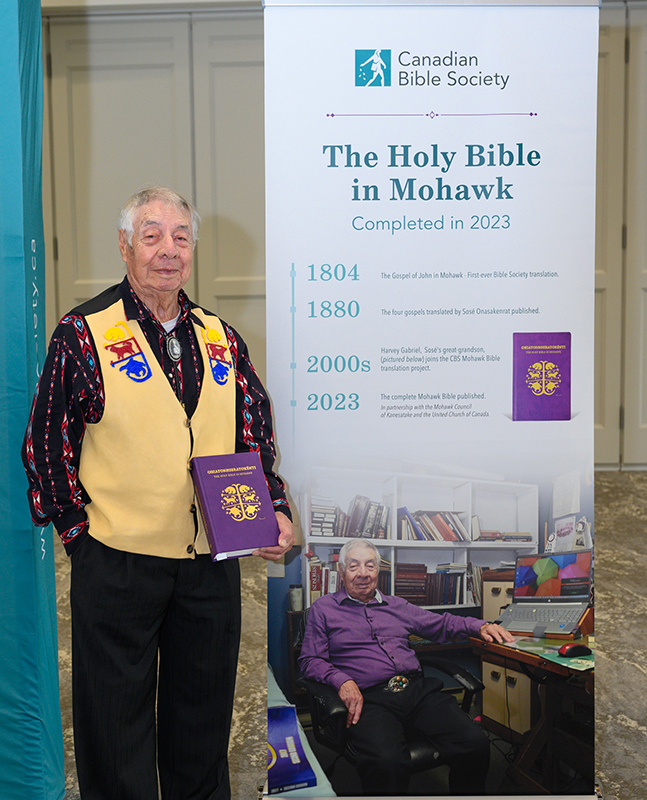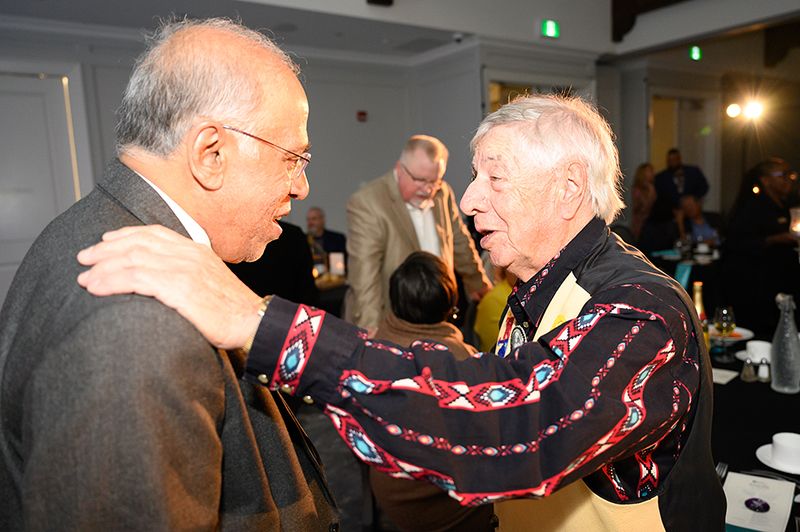
At a celebratory evening in Caledonia, Ontario, the Canadian Bible Society (CBS) commemorated the efforts of Harvey Satewas Gabriel to translate the Bible into the Mohawk language. The first translation in the history of the Bible Society was the translation of the Gospel of John in Mohawk by the British and Foreign Bible Society in 1804. This was followed in 1880 by the translation of the four Gospels by Sosé Onasakenrat of Kanesatake, Gabriel’s great-grandfather.
After nearly 200 years, the Mohawk Bible is now complete, thanks to the efforts of several other Mohawk translators and Gabriel, who spent nearly 24 years translating the Bible. Published by CBS, the project was a partnership with the Mohawk Council of Kanesatake and the United Church of Canada.
Addressing the gathering of Mohawk community members, church leaders, Six Nations elected officials and Bible Society officials, Gabriel said it’s not about him, it’s about the Word of the Creator. He said the Mohawk Bible got so many people coming together. “What a joyful thing it is – to come together for the Mohawk Bible, and to read the Word of God together.”
Rev. Dr. Rupen Das, president of CBS, which helped Harvey with translation and linguistic support and funding, said making the Bible available in people’s heart language is a top priority for Bible societies. “God speaks through His Word, but how can people hear if it’s not in a language they value and appreciate?” he added.
Rt. Rev. Dr. Carmen Lansdowne, moderator of the United Church of Canada, said that as an Indigenous woman and a Christian, she was grateful for the opportunity to see Indigenous joy. Lansdowne added that the Mohawk Bible is an amazing work of reconciliation and it’s ecumenical.


The Bible is a vast collection of literature – 66 books of various genres – stories, histories, legal codes, poetry, proverbs, epistles and visions, said Dr. Jeff Green, Vice President for Bible translation at CBS. “These books provide ancient yet relevant perspectives on many facets of human experience. It’s an incredible resource for any language,” said Green.
The Truth and Reconciliation Commission of Canada’s Call to Action 14 states that Indigenous languages are a fundamental and valued part of Canadian culture and society and that there is an urgent need to preserve them. The Canadian Bible Society is eager to collaborate and welcomes requests to engage in the translation and publication of Scriptures for Canada’s Indigenous communities.